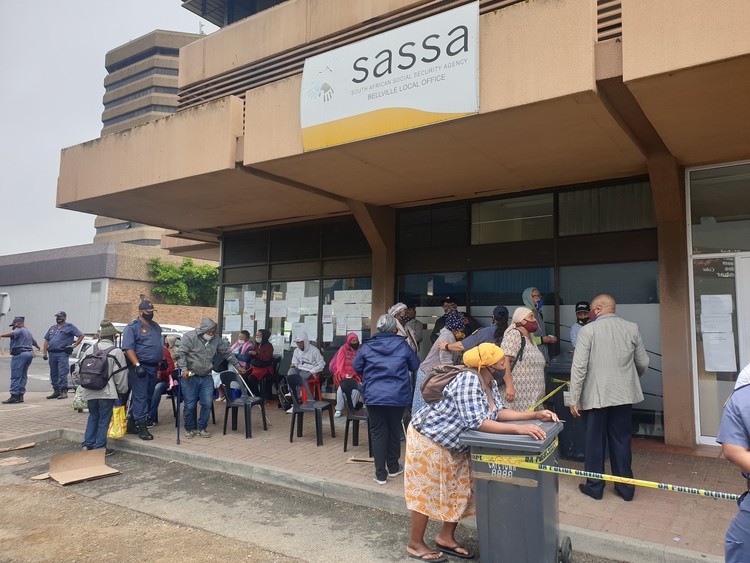
30 March 2021
Applicants renewing their disability grants queue outside the Bellville offices of the South African Social Security Agency in January. Archive photo: Mary-Anne Gontsana
Most of the temporary disability grants in the Western Cape that were to lapse this week are being processed, says the South African Social Security Agency (SASSA).
GroundUp previously reported that at the beginning of March 2021, more than 31,000 people still had to be medically assessed. But SASSA in the Western Cape said that it was confident it would clear its backlog. The Western Cape at the time also had the largest number of backlogged cases in the country.
In a statement on Tuesday, SASSA said it had waded through its medical assessment backlog in order for the grants to be processed. It said 31,587 out of 35,332 people had been assessed to date.
But the Black Sash has warned that the process is far from completed for those waiting to have their grants renewed because the medical assessments do not guarantee that the application will be accepted.
The remaining temporary disability grants are due to lapse on Wednesday, 31 March. The grants were extended twice last year during the Covid-19 lockdown. After that, beneficiaries were encouraged to re-apply at SASSA offices with a detailed doctor’s report. This resulted in long queues of people wanting to renew their grants, some even sleeping outside the offices.
The Black Sash’s National Advocacy Manager, Hoodah Abrahams-Fayker, said while medical assessments were mostly completed, applicants still needed final approval from SASSA and this could take time.
Abrahams-Fayker also said that the shortage of doctors to do medical assessments had been one of the biggest challenges with the backlog of disability grants during the pandemic. “We are concerned about the quality of the assessments and that many applicants may end up not qualifying for the Temporary Disability Grant,” said Abrahams-Fayker.
She said that the Black Sash suggested that applicants seeking to renew their grants should be eligible to receive a Social Relief of Distress Grant pending the approval of their Temporary Disability Grant.
“Many of those waiting for medical reassessments or the outcome of their application depend on the grant for their most basic needs and to buy food while they are unable to work.
“Some are on chronic medication and should not be put in a position where they have to consume medication on an empty stomach,” said Abrahams-Fayker.